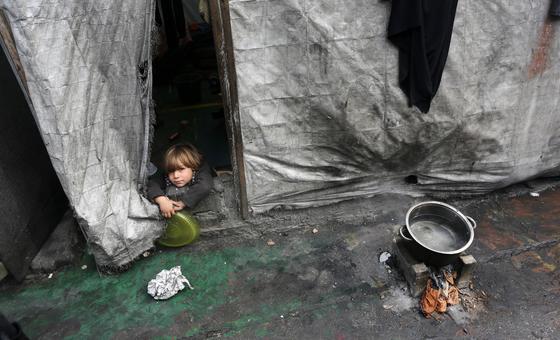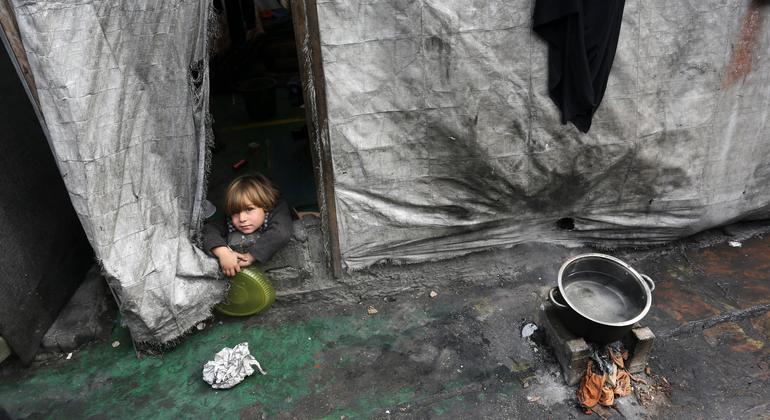
The emergency relief agency said that a 14-truck food convoy – the first by WFP since it paused deliveries to northern Gaza on 20 February – was turned back by the Israeli Defence Force (IDF) after a three-hour wait at the Wadi Gaza checkpoint.
“Although today’s convoy did not make it to the north to provide food to the people who are starving, WFP continues to explore every possible means to do so,” said Carl Skau, WFP Deputy Executive Director.
After being turned away the convoy was rerouted and later stopped by a large crowd of desperate people who looted the food, taking around 200 tonnes from the trucks.
Roads ‘the only option’
The agency also stressed that road routes are the only option to transport large quantities of food needed to avert famine in northern Gaza.
Earlier on Tuesday, with the help of the Royal Jordanian Air Force, six tons of WFP food supplies for about 20,000 people were dropped for civilians surviving in the north.
“Airdrops are a last resort and will not avert famine,” Mr. Skau stressed.
“We need entry points to northern Gaza that will allow us to deliver enough food for half a million people in desperate need,” he added.
Catastrophic levels of hunger
WFP further warned that hunger has reached catastrophic levels in the north where children are dying of hunger-related diseases and suffering severe levels of malnutrition.
A massive relief operation requires more entry points into Gaza, including from the north, and the use of Israeli’s Ashdod port, it said, reiterating the need for an urgent ceasefire to enable such an operation.
Extremely challenging conditions
Also on Tuesday, UN Spokesperson Stéphane Dujarric said that humanitarian personnel working on water, sanitation and hygiene in the enclave are reporting extremely challenging conditions amid high level of displacement and overcrowding in shelters.
According to their latest assessment, some 340 people are sharing a single toilet and there is one shower for roughly 1,300 people on average, and over 80 per cent of households in Gaza lack safe and clean water, Mr. Dujarric said at the regular press briefing at the UN Headquarters, in New York.
In response, the UN Children’s Fund (UNICEF) has been providing fuel to operate public and private water wells and desalination plants.
The agency has also delivered more than 50 emergency health kits for more than half a million people and enough newborn kits for 8,700 newborns, Mr. Dujarric said.



